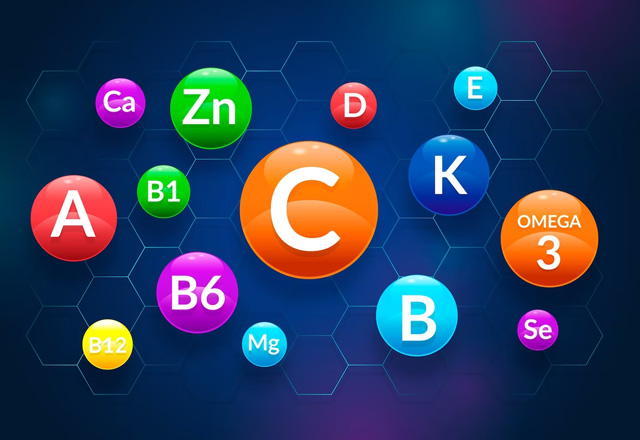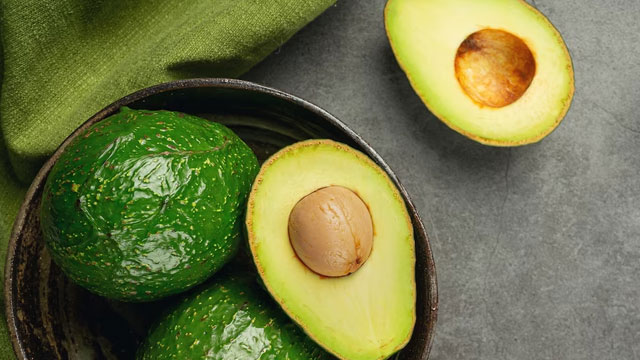
Are you looking for a way to boost your health and energy levels? Look no further than the alphabet! From vitamin A to vitamin K, each letter represents a crucial nutrient that your body needs to function at its best.
Incorporating these vitamins into your daily diet can improve your immune system, support healthy bones and teeth, and even enhance your vision. But with so many vitamins to choose from, it can be overwhelming to know where to start. That's why we've put together this guide to the ABCs of vitamins, breaking down the benefits of each one and suggesting delicious and easy ways to incorporate them into your meals. Whether you're a health nut or just looking for some simple tips to improve your diet, this guide will help you understand the importance of vitamins and how they can help you achieve your health goals. So let's dive in and discover the power of the ABCs of vitamins!
Benefits of Vitamins
Vitamins are important for maintaining good health and preventing diseases. They help to boost the immune system, support healthy bones and teeth, and promote healthy vision. Vitamins also play a role in energy production and help to regulate metabolism.
Vitamin deficiencies can lead to a variety of health problems, including fatigue, weakness, and a weakened immune system. In severe cases, vitamin deficiencies can even lead to serious illnesses such as scurvy, rickets, and night blindness.
Incorporating vitamins into your daily diet can help to prevent these problems and promote overall good health. Let's take a look at the different types of vitamins and their benefits.
The Different Types of Vitamins
There are two types of vitamins: fat-soluble and water-soluble.
Fat-soluble vitamins (A, D, E, and K) are stored in the body's fatty tissues and liver. Because they are stored in the body, it is possible to consume too much of these vitamins, which can be toxic.
Water-soluble vitamins (B-complex and C) are not stored in the body and are excreted in the urine. This means that it is difficult to consume too much of these vitamins, as any excess is simply eliminated from the body.
Now let's take a closer look at each of the essential vitamins and their benefits.
Vitamin A - Sources and Benefits
Vitamin A is important for maintaining healthy skin, eyesight, and immune function. It is an antioxidant that helps to protect the body from damage caused by free radicals.
Sources of vitamin A include liver, sweet potatoes, carrots, spinach, and kale. One medium sweet potato contains over 400% of the recommended daily intake of vitamin A.
If you are looking for a delicious way to incorporate vitamin A into your diet, try making sweet potato fries. Simply slice a sweet potato into fry shapes, toss with olive oil and sea salt, and bake in the oven until crispy.
Foods that are particularly high in vitamin A include:
- carrots
- sweet potatoes
- winter squash
- cantaloupe
- apricots
- spinach, kale, and collard greens
Some spices are also high in vitamin A, including paprika, red pepper, cayenne, and chili powder.
Vitamin B - Sources and Benefits
The B-complex vitamins (B1, B2, B3, B5, B6, B7, B9, and B12) are important for energy production, brain function, and the formation of red blood cells.
Sources of vitamin B include meat, fish, dairy, leafy greens, and whole grains. One cup of cooked lentils contains over 90% of the recommended daily intake of vitamin B6.
If you are looking for a quick and easy way to incorporate vitamin B into your diet, try making a lentil salad. Simply toss cooked lentils with chopped veggies (such as bell peppers, tomatoes, and cucumbers), feta cheese, and a simple vinaigrette dressing.
Foods that are particularly high in vitamins B-6 and B-12 include:
- meat, poultry, and fish
- seafood, including mussels and oysters
- eggs
- milk
Foods that are particularly high in B-9, or folic acid, include leafy green vegetables and poultry. Some breakfast cereals, fruit juices, and other products are fortified with folic acid.
Vitamin C - Sources and Benefits
Vitamin C is important for maintaining healthy skin, bones, and teeth. It is also an antioxidant that helps to protect the body from damage caused by free radicals.
Sources of vitamin C include citrus fruits, strawberries, kiwi, and bell peppers. One medium orange contains over 100% of the recommended daily intake of vitamin C.
If you are looking for a refreshing way to incorporate vitamin C into your diet, try making a fruit salad with citrus fruits and strawberries. Simply chop the fruit into bite-sized pieces and toss together in a bowl.
Foods that are particularly high in vitamin C include:
- papaya
- citrus fruits
- strawberries
- bell peppers
- broccoli
- Brussels sprouts
- dark leafy greens, such as kale, mustard greens, and chard
Vitamin D - Sources and Benefits
Vitamin D is important for maintaining healthy bones and teeth. It helps the body to absorb calcium and phosphorus, which are essential for bone health.
Sources of vitamin D include sunlight, fatty fish (such as salmon and tuna), and fortified dairy products. One 3-ounce serving of cooked salmon contains over 100% of the recommended daily intake of vitamin D.
If you are looking for a delicious way to incorporate vitamin D into your diet, try making salmon tacos. Simply grill or bake salmon fillets and serve in a warm tortilla with avocado, salsa, and a squeeze of lime juice.
Though sunshine is by far the richest source of vitamin D, foods that also provide vitamin D include:
- some seafood, such as salmon, herring, catfish, trout, and oysters
- milk
- eggs
- shiitake mushrooms
Vitamin E - Sources and Benefits
Vitamin E is important for maintaining healthy skin and eyesight. It is also an antioxidant that helps to protect the body from damage caused by free radicals.
Sources of vitamin E include nuts, seeds, leafy greens, and vegetable oils. One ounce of almonds contains over 30% of the recommended daily intake of vitamin E.
If you are looking for a tasty way to incorporate vitamin E into your diet, try making homemade trail mix with almonds, pumpkin seeds, and dried cranberries.
Foods that are particularly high in vitamin E include:
- sunflower seeds and almonds
- spinach, Swiss chard, and turnip greens
- bell peppers
- asparagus
Vitamin K - Sources and Benefits
Vitamin K is important for blood clotting and bone health. It helps to regulate calcium in the body and can prevent osteoporosis.
Sources of vitamin K include leafy greens, broccoli, Brussels sprouts, and cabbage. One cup of cooked kale contains over 100% of the recommended daily intake of vitamin K.
If you are looking for a healthy way to incorporate vitamin K into your diet, try making a kale salad. Simply massage chopped kale with olive oil and lemon juice, and top with sliced almonds, dried cranberries, and crumbled feta cheese.
Foods that are particularly high in vitamin K include:
- kale, spinach, collard greens, Swiss chard, turnip greens, and mustard greens
- romaine lettuce
- parsley
- Brussels sprouts
- broccoli
- asparagus
How to Incorporate Vitamins into Your Daily Diet
Incorporating vitamins into your daily diet is easy and delicious. Here are some tips for incorporating the ABCs of vitamins into your meals:
- Start your day with a vitamin-rich smoothie made with leafy greens, berries, and yogurt.
- Snack on fresh fruits and veggies throughout the day, such as apple slices with almond butter or carrot sticks with hummus.
- Add leafy greens to your salads and sandwiches for an extra boost of vitamins and minerals.
- Make a colorful stir-fry with veggies such as bell peppers, broccoli, and carrots.
- Swap refined grains for whole grains such as quinoa, brown rice, and whole wheat pasta.
- Experiment with different herbs and spices to add flavor and nutrition to your meals.
Conclusion
Incorporating the ABCs of vitamins into your daily diet is essential for good health and overall well-being. Each vitamin plays a unique role in the body, and consuming a well-balanced diet that includes all essential vitamins can help to prevent deficiencies and promote good health. With these tips and recipe ideas, you can easily incorporate vitamins into your daily meals and enjoy the benefits of a healthy and nutritious diet.



